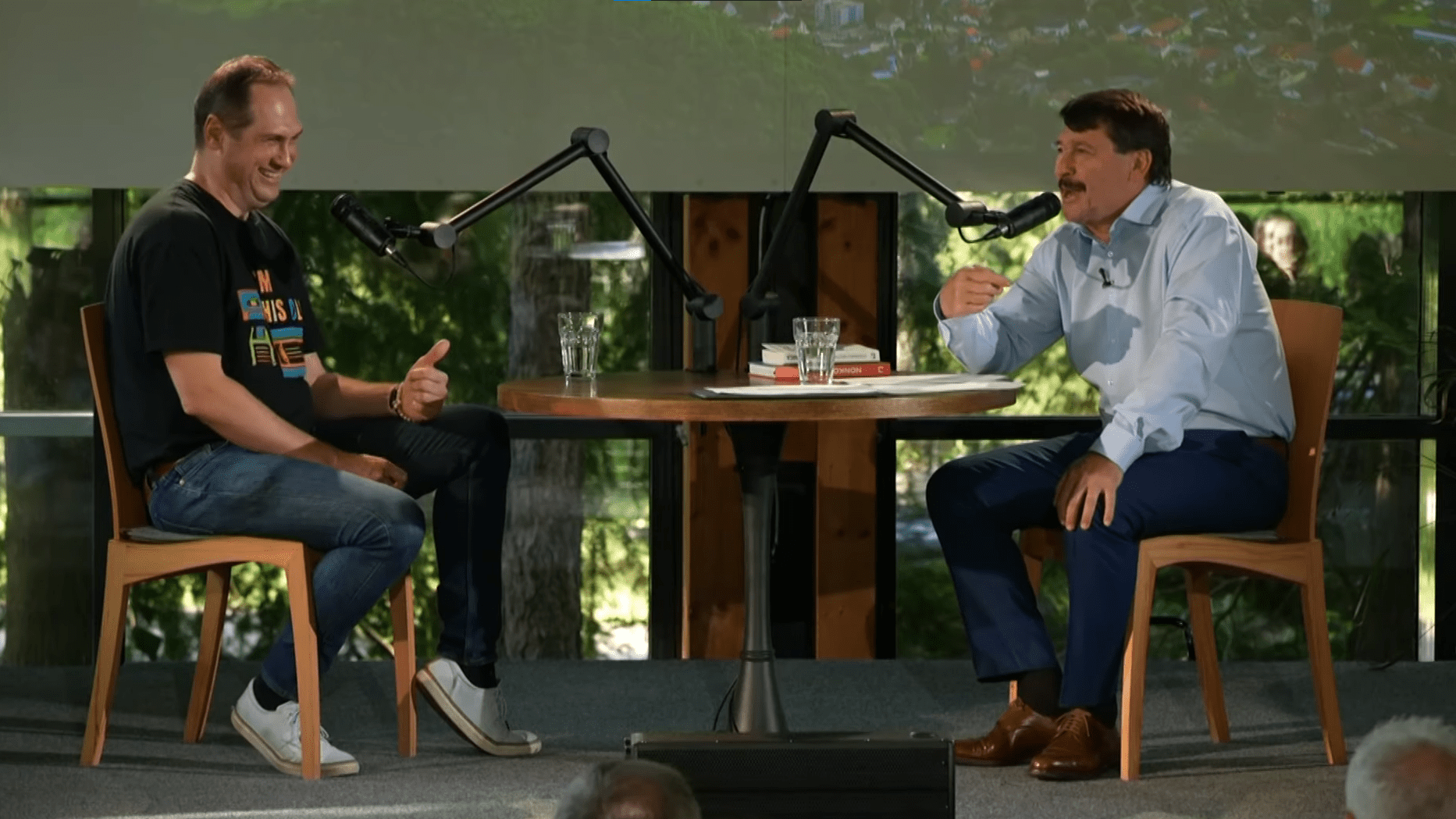Former President János Áder discussed the home rules for using digital devices, their societal and individual impacts, and their consequences on the climate with generational researcher Krisztián Steigervald in the latest episode of the Blue Planet podcast, released on Monday. In the second episode of the conversation series within the SopronFest programme, the Chairman of the Board of Trustees of the Blue Planet Climate Protection Foundation and Steigervald explored the impact of the digital world on the climate.
Áder stated that the IT sector has a significant environmental footprint: it accounts for 10 per cent of the world’s energy consumption and 5 per cent of its carbon dioxide emissions, which is double that of the aviation industry. He noted that manufacturing a mobile phone requires 13,000 litres of water and approximately 40 different materials. When asked whether the younger generations, who are sensitive to sustainability, are aware of the carbon footprint of a single search on a popular search engine, Steigervald replied that such information often does not reach them due to business interests and the complexity of understanding these impacts. People tend to think more about the positive benefits of the internet, he added. In connection with this, Áder cited a positive example of the foundation’s waste collection campaign for schools during Sustainability Week, where used mobile phones could be handed in by the end of May. The students and schools that collected the most points were supported with shopping vouchers and foundation grants.
Regarding the impact of digital devices on brain function, it was mentioned that digital reading significantly impairs the quality of attention, reduces imagination, and diminishes empathy.
Generációk együttélése a digitális világban
Tudta, hogy egy átlagos magyar szülő – a KSH adatai alapján – naponta mindössze 7 percet (!!) beszél a gyerekével? A születéstől kezdve digitális szabályokat kell bevezetni – vallja Steigervald Krisztián. A generációkutató a SopronFesten rögzített podcastben beszél arról, való igaz, hogy a digitális eszközök rabjává váltuk, de ebben az ember, a szülő szerepe is óriási.
Steigervald noted that this issue affects all generations that use digital devices, from young children to the elderly. An American study showed that the short-term memory of people over 70 who frequently use the internet improved, whereas it typically declines after the age of 65. He also pointed out that
the increase in internet and mobile phone use has drastically reduced the number of eye contacts among family members,
which is the foundation of emotional intelligence.
In this context, Áder noted that many people chat on their mobiles while breastfeeding instead of paying attention to their babies. While concurring that this is not the best idea, in defence of young mothers the expert clarified that today mothers spend much more time with their young children than they did 30 or 40 years ago.
It was also mentioned in the episode that a young person today spends 6 to 8 hours in front of a screen, raising the question of how useful and valuable this time is. Steigervald argued that adolescence is not necessarily about always doing useful things; however, it is important that we use the device, and not the other way around. In today’s uncertain world, the previously perceived anchors have disappeared and are now found in the digital world or through television. He added that it is the responsibility of adults to teach children how to use digital devices, which is a process. This requires having rules, a digital code in the family, such as not using mobile phones during meals, which adults often do not adhere to. This implies a kind of self-awareness, which the generational researcher believes will be the most important skill of the 21st century. Citing a series of data from the Hungarian Central Statistical Office, he noted that a parent talks to their child for an average of seven minutes a day. He emphasized that the current older generation can translate the values of the 20th century, such as friendship, love, and helpfulness, into the language of the 21st century.
Related articles:







